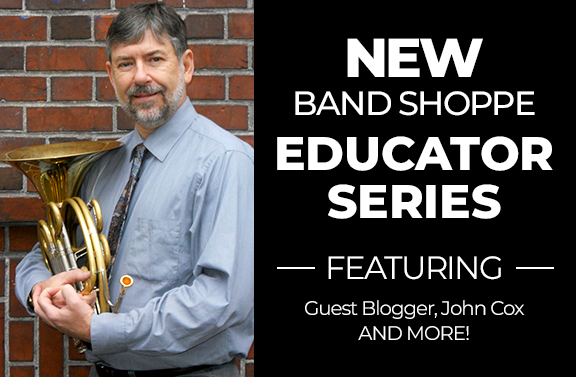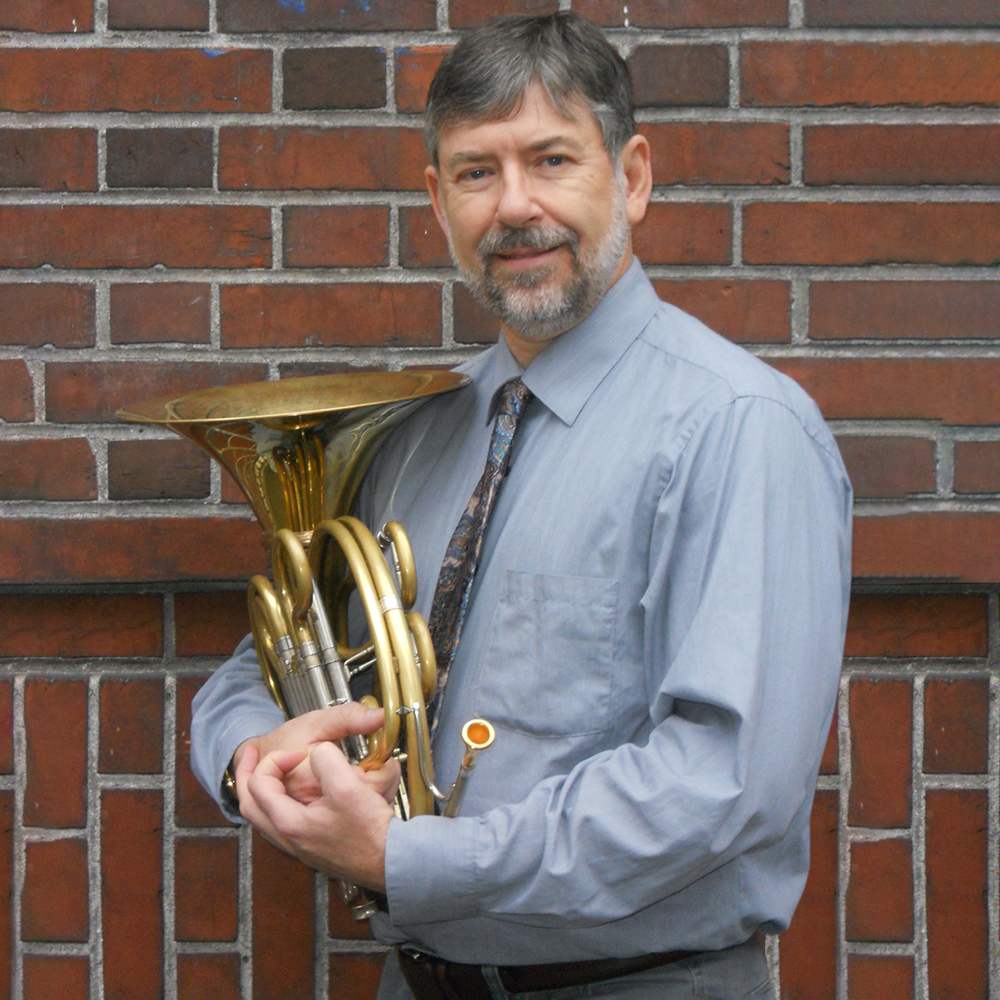Your cart is currently empty!
Guest Writer Intro: John Cox

Greetings! I would like to introduce a new offering of Band Shoppe for anyone interested in music education. This includes Band Directors, Music Educators, and the general public who might appreciate some original thoughts and articles dedicated to music education and its professionals and devotees.
Like so many ideas, this one started during a visit with old friends over a fried chicken dinner. I’ve known the Pearisons since 1972 when I began working for Pearison Music Service as part of the original “…staff of five…”. Being 15, I started by manning a broom, patrolling waste baskets, and graduated to lawn maintenance. I then learned instrument repair, focusing on brass. I worked at Pearison Music Service throughout high school and my undergrad years.
Early Lessons in Music Education and Repair
Being a small company determined to succeed, we worked hard. The hours were sometimes long, especially in the summertime when entire bands would send us their instruments for “clean and play” work. Those were lengthy days, often performing very intricate repairs with short turnaround times. And thanks to the camaraderie of people who became lifelong friends, if not family, it was the most fun working I’ve ever had.
This “job” gave me an early and very unique view of the music business. During the summers, band directors often came to the store to ask about repairs and new instruments and peruse new sheet music arrangements. I saw these directors ignoring two months of downtime (mostly away from students) as they prepared for summer parades, organized band camps, plotted halftime shows, looked towards holiday programs, arranged pep bands, and gave early thoughts to spring solo and ensemble and band competitions. During those visits, I listened and gained respect for the hard work and dedication to the business of music education.
The Horn Call 2
Now, back to the fried chicken.
I mentioned to Jay Pearison, current President of Pearison Inc., that I was considering writing an article for “The Horn Call 2” about my “retirement” work over the past few years with Cleveland High School in the Portland, Oregon, Public Schools system. The Cleveland program is a successful “turnaround” program despite being somewhat neglected when my own children attended. Jay then asked that I instead consider writing a blog for Band Shoppe and its audience of music educators, a project he had been contemplating for a while. He suggested that my varied experiences within the music industry might have some value to the audience Band Shoppe reaches and serves. I was flattered, particularly with the notion of coming full circle and being associated with Pearison Music Service/Band Shoppe again.
A Lifetime in Music Performance and Education
I will share at this point that despite having a BME, I’ve never been a band director, much less the director of a band program. Life led me to perform. However, my experiences with the music business at large, my education work in schools as a guest clinician, my time with the Oregon Symphony, and the music programs I began, which continue as part of its community outreach efforts, permit me to offer singular views of the music education business. A different way of looking at things within conventional thinking, as it were.
Like so many of us, my musical start was through the public school system. Ms. Mildred Blake, the New Harmony Indiana public school K-12 music teacher, was a very dedicated educator and, as many came to discover, a force of nature. After motivating me to progress, she introduced me to Paul Nolte, horn instructor at the University of Evansville, IN, where I graduated with a BME degree. I then attended Boston University and received a Master of Music degree.
My professional performance experience began when I auditioned for and won the 3rd horn position of the Evansville Philharmonic Orchestra (EPO). I performed with the EPO during my final year of high school and while at UE. (All while continuing to work at Pearison Music Service.) I later spent two years performing in Caracas, Venezuela. Returning to the U.S., I won my position with the Oregon Symphony, where I was Principal French Hornist for 38 years, retiring in 2020.
From Performance to Community Outreach
I spent 28 summers as a member of the Mainly Mozart Festival orchestra in San Diego and almost the same amount of time with Chamber Music Northwest in Portland. Later, I was invited to join the faculty of the Barry Tuckwell Institute as an instructor/lecturer and became a member of the Westwood Woodwind Quintet.
As enjoyable and demanding as it was to earn a living while performing with some of the greatest artists of the time, I drifted towards a different side of the music business. Now a “life member” of Local 99, American Federation of Musicians (AF of M), I served my colleagues in 6 negotiations during ten tumultuous years. I performed financial research and wrote reports and position papers, including papers requested by our management on our local programming and marketing. I also wrote a six-article series for “The Horn Call” under “Negotiations – Making our Business’ Our Business.”
My service to Local 99 included attending the AF of M National Conventions three times. I still serve as our Finance Committee chair – reconciling accounts and preparing annual budgets for a local of over 500 members.
Coaching the Next Generation of Musicians
Caught at a weak moment in August 2022 (I was recovering from Covid), I was asked by Gary Riler, the Cleveland High School band director, to join his adjunct staff (about 4 of us) as a coach for his horns. My children had attended Cleveland, so I was familiar with the school of about 1400 students. Considering the invitation, I thought it would be a good opportunity to continue using my BME degree. Finally, meeting Gary, whom I was not acquainted with, we agreed on a straightforward schedule: show up twice a month to teach and coach the horns in his three bands: freshmen, intermediate, and the top wind ensemble.
From Part-Time to Full Commitment
That very part-time responsibility became more intensive after the holidays when Gary asked if I would coach some chamber music ensembles preparing for the early March district solo and ensemble contest. To do this properly meant showing up MUCH more frequently, but if you’ve ever spent a winter in Portland, having something to do other than watch the rain fall becomes very important. Bringing my student chamber music learning experiences and professional performance preparation approach to these student groups led our groups to success. The students did well at districts, with several qualifying to advance to State Finals. The woodwind quintet placed 1st at State a month later, the first 1st – in–state anything the school had won in a very long time. The trophy that came with the win sat on the front office greeting counter for over a week!
Success and Growth in 2024
We started a bit earlier in 2024, and I coached nine ensembles, including a trumpet duet, a freshman flute trio, and a saxophone quartet. For younger, less experienced groups, we chose skill and age-appropriate music. The instruction focused on encouraging improvement over winning and letting them enjoy (as much as young players can) the experience.
The results? A percussion duet (which I did not coach) placed 1st in State, the double reed quintet placed 2nd in State, a small brass ensemble placed 3rd, and the brass quintet just missed, placing 4th. This experience was confidence-building for all the students, and the attitude carried over when Cleveland’s top band placed 3rd in State band competition, the highest any Portland school had ever placed. Even better, the jazz ensemble placed 2nd. The entire band program has taken pride in the concept that the success of one is success for everyone. Best of all, and in spite of some very hard work on their part, the students all became more enthusiastic, and they had fun. So did I.
Future Topics for Music Educators
These experiences will be part of future writings: what we did, how we got there, and improvements for the future. We intend to cover a variety of ground in these writings. Other topics will explore the historical evolution of public music education and where it might go in the 21st century under the guise of “past performance predicts the future.”
Related writings will include where and how music in high school curriculums intersects and enhances other classes as students become better prepared for continued education and/or future employment for the jobs of today and tomorrow. As we identify them, guest writers will be asked to submit ‘Case Studies’ of their programs and methods. All with the idea of creating material to bring and share information and fresh thoughts to and for band directors and music educators. Not all ideas will work for everybody or every situation, but we hope these articles will contain nuggets of value for all readers. Sharing these experiences and the research behind them is both exciting and satisfying to me, and we hope it is satisfying to you, the readers.
Here we go!
Contributing Expert

John Cox is the former Principal Horn of the Oregon Symphony. He is a long-time member of the Mainly Mozart Festival orchestra in San Diego, a frequent performer with Chamber Music Northwest, has been a faculty member of the Barry Tuckwell Institute, and has lectured at numerous IHS workshops, most recently in London. John also works in creative consulting with the Oregon Symphony in community relationship building and partnering with new audiences in underserved venues. He records as solo horn with the Oregon Symphony and as hornist with the Westwood Woodwind Quintet.